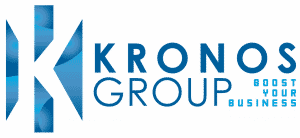The advantages of e-procurement Belgium companies can benefit from

Summary
As the procurement landscape evolves with e-procurement, Belgium companies, both in the public and private sectors, have ample opportunities to utilise the advantages it brings to improve their procurement processes.
Looking at the advantages of e-procurement Belgium companies in the private sector can benefit from, the major pros can be identified as ease of implementation, cost reductions, efficiency improvements, supplier management enhancement, and regulatory compliance.
The advantages of e-procurement Belgium public organisations can benefit from, apart from the aforementioned, are reduced spending, enhanced transparency, and decreased corruption and fraud.
For a digital-forward country like Belgium, the possibilities are endless when it comes to technologies like e-procurement.
Procurement is an increasingly important consideration for both public and private organisations as the value of a well-established procurement strategy becomes highly apparent.
In an environment where competition is at an all-time high, ensuring cost-effective sourcing of goods and services, positive supplier relationships, high operational efficiency, and adequate support for strategic decision-making are vital to stay on top.
These are all facilitated by effective procurement strategies.
E-procurement is the natural evolution of procurement, incorporating online platforms and digital systems to conduct the procurement process. The growth of e-procurement is inevitable as the world embraces digital technology.
According to PwC’s Global Digital Procurement Survey in 2022, procurement departments had set an ambitious target of achieving an average of 72% digitisation by the end of 2025, which was hampered by the effects of the COVID-19 pandemic, resulting in a decrease to an average digitisation rate of 41%.
Nevertheless, procurement departments prioritising transforming their procurement process is a testament to its importance.
While e-procurement is widely recognised as a positive development, how has it affected Belgium’s public and private sectors?
Internet penetration in Belgium was at 94.5% in early 2023, signalling adequate adjustment towards today’s more digitalised environment. According to McKinsey & Company, Belgium companies are also more digitally mature than their global and regional counterparts.
As such, it is a fair assumption that Belgium companies, whether public or private, stand to gain much from e-procurement. Here are the advantages of e-procurement Belgium companies can benefit from, in the public and private sectors.
Advantages of e-procurement for Belgium companies in the private sector
As private companies in Belgium are generally well-adjusted to digital technologies, they can enjoy the following advantages of e-procurement.
Eased implementation
Companies in Belgium will generally find it easier to implement e-procurement initiatives within their organisations as a result of their adjustment to the digital environment, paving the way for more tangible benefits.
Reduced costs
Cost savings can be achieved through better negotiations with suppliers, competitive bidding, and enhanced spending visibility, resulting in reduced costs and better budget management.
Improved efficiency
Efficiency can be enhanced as a result of automation offered by e-procurement systems. It speeds up procurement processes by reducing manual tasks and paperwork, freeing up employees to focus on strategic activities.
Simplified supplier management
Supplier relationship management can be improved with e-procurement platforms as they offer better communication and collaboration. This allows companies to build stronger relationships.
Ensured compliance
Regulatory compliance can be ensured with e-procurement systems as they allow companies to create standardised procurement practices that adhere to company policies and external regulations.
Advantages of e-procurement for Belgium public organisations
As public organisations are generally subject to more stringent regulations, e-procurement can be a boon in meeting these requirements.
Apart from the advantages aforementioned, public organisations can additionally benefit from the following.
Reduced government spending
E-procurement has been seen to reduce government spending by 6-13% as per research conducted by the World Bank. The main contributor to this reduction is the ability to ease access for suppliers to engage with government tenders.
Enhanced transparency
E-procurement systems offer a transparent platform that facilitates open tracking of procurement processes. This enhanced transparency also improves accountability by ensuring that procurement processes are carried out fairly.
Minimised corruption and fraud
E-procurement minimises opportunities for corruption and fraud with the safeguards offered by digitisation. Corruption costs are estimated at 5% of the global GDP and these costs can be lessened with e-procurement as all transactions are recorded digitally.
Leverage the changing landscape of e-Procurement Belgium companies can benefit from
As a digital-forward country, the advantages of e-procurement Belgium companies can benefit from, in both the public and private sectors, is vast. This is especially true as the e-procurement landscape continues to evolve with new technologies, such as advanced automation options, sustainability integration, and supplier diversity focus.
To leverage the capabilities of e-procurement to its full potential, Belgium companies can utilise the services of procurement consultants specialising in transforming procurement processes to adapt to the current business environment.




